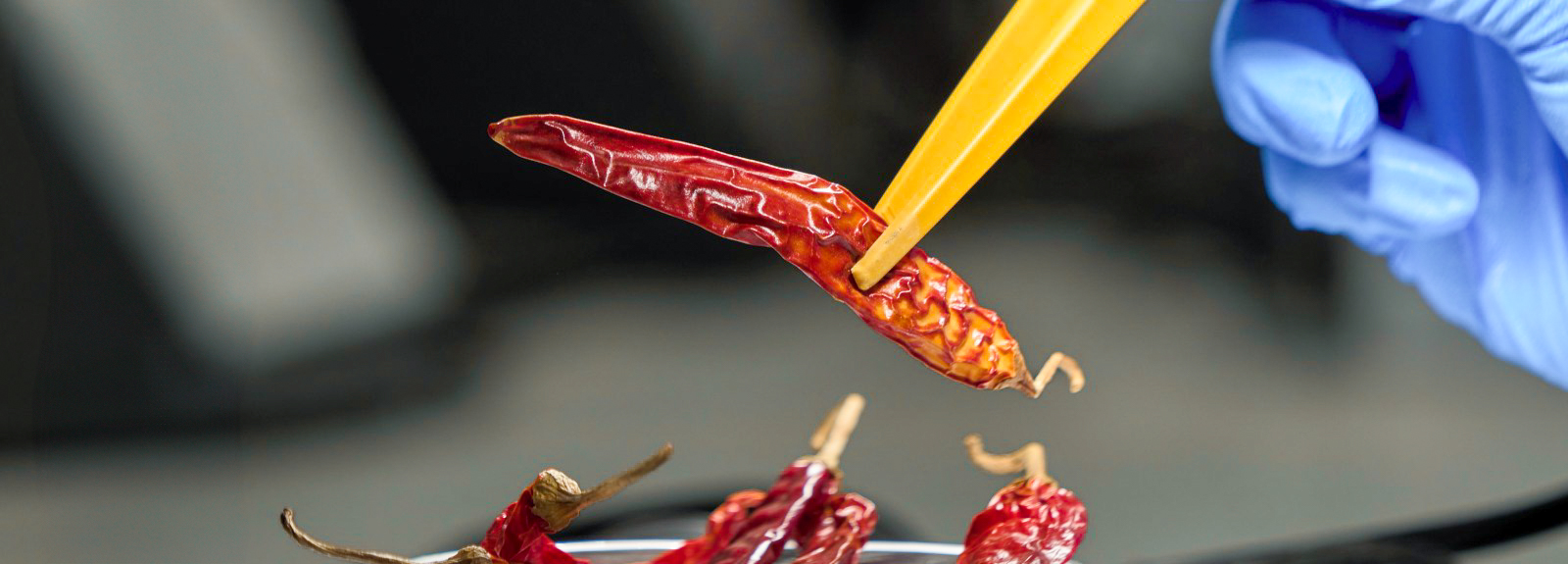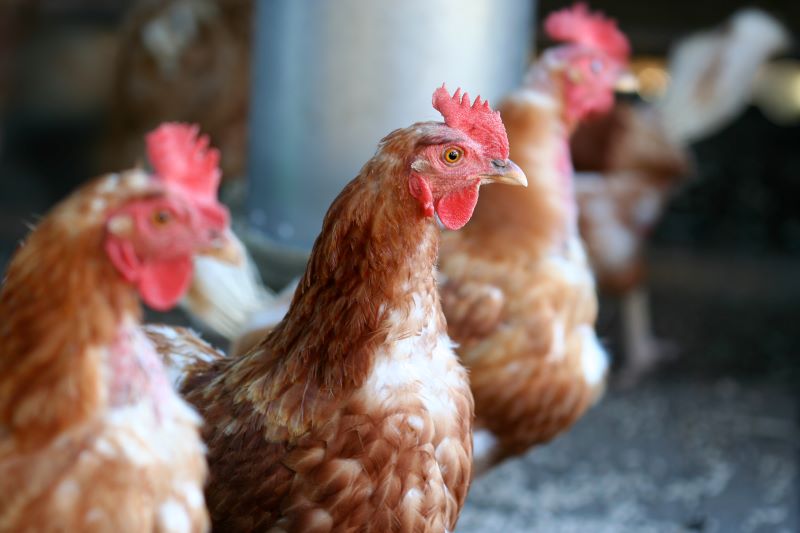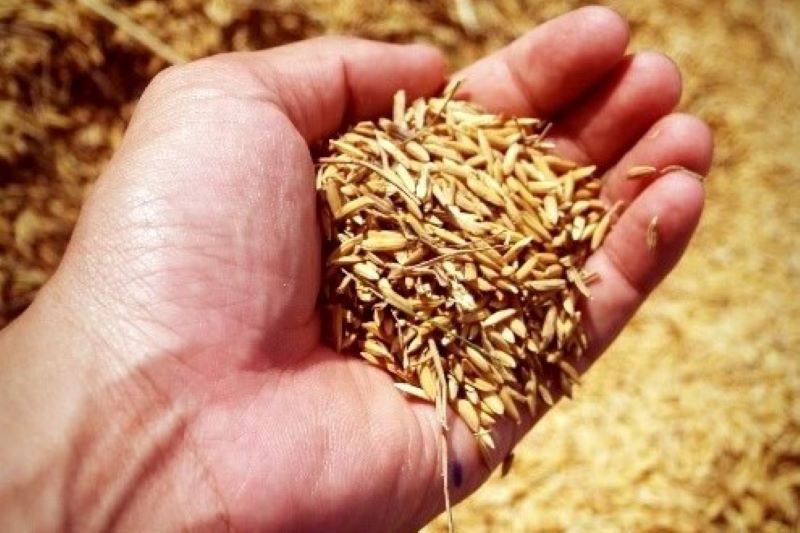Research Impact

Delivering impactful research, designed to help meet global challenges.
We strive to tackle global issues, such as food insecurity and environmental challenges, via a vibrant and integrated research and impact environment, conducting globally competitive and sustainable research. Key examples of our impact include the Elliott Review (for UK Government) on food safety after the horsemeat scandal; determining the impact of intensive animal farming on climate change and land use; changes to animal-welfare legislation.
Our research clearly maps on to many UN Sustainable Development Goals, including Zero Hunger; Good Health; Clean Water; Climate Action. In the 2024 Times Higher Education Impact Rankings, we were placed No 19 for Life Below Water (out of 628 institutions) and No 9 for Life On Land (out of 741 institutions). The UN International Atomic Energy Agency (IAEA) designated us as an IAEA Collaborating Centre in 2021, recognising our global reach in food safety, authenticity and traceability.
See below for some ongoing examples of our impact:

The global herbs and spices trade is worth billions – yet it is highly vulnerable to food fraud, estimated to cost the world economy more than £20 billion per year.
Professor Chris Elliott OBE and team have been testing herbs and spices, including sage and oregano, chilli powder and turmeric, pepper and paprika, for authenticity for almost a decade.
In partnership with the consumer magazine WHICH?, they revealed in 2015 that more than 25% of oregano selling in UK and Ireland was adulterated. They carried out this research with a blend of laboratory analyses they had developed, using mass-spectrometry and other analytical-chemical approaches. As a result, over 50 leading manufacturers and retailers, such as Sainsbury’s, began regular testing along their supply chains, using the diagnostic methods developed at Queen's. At least one prosecution for food fraud has resulted.
A follow-up survey in 2020 revealed that oregano adulteration had decreased fivefold, suggesting the earlier findings had triggered more scrutiny on the part of the food industry and food-standards agencies.
Other key findings have been that more than a quarter of sage sold via online retailers and smaller, independent shops was bulked out with non-food material such as dried leaves from olive trees; and that chilli powder had been adulterated with a carcinogenic dye.
In tandem with the new lab tests developed at Queen's, our team also developed handheld, infrared technology to enable manufacturers and processors to quickly and affordably detect adulteration, at different points along the foodchain, on site.
As a direct result of all these advances, the Asset Technology Centre became an industry-accredited lab for the detection of herb and spice adulteration (UKAS ISO 17025). The lab was also listed as a ‘Centre for Expertise’ by the UK Department of Energy, Food and Rural Affairs (DEFRA) – the only university to hold this status. The research also resulted in the formation of a spinout company, Bia Analytical.
The success of the team in this area of food integrity directly resulted in our being awarded the status of ‘Collaborating Centre’ by the UN-affiliated International Atomic Energy Agency in 2021.

Research led by Professor Niamh O’Connell and colleagues investigated methods of improving the environment for both laying hens and broiler chickens - with direct impact on animal-welfare policies and industry standards.
Broiler chicken production is big business, with an average of 20M broilers slaughtered per month in the UK. Public perception of broiler welfare can be poor and, with no legal requirements for environmental enrichment, broiler producers are creating their own 'higher welfare' systems to meet a growing consumer demand. Over the last decade, Prof O’Connell and her team have worked closely with leading industry producers to provide evidence-based advice on ways to enhance broiler housing.
One large-scale study by this research group revealed the benefits of providing windowed housing, with access to natural light leading to improved litter condition, an increase in broiler activity levels and improved walking ability. This was the first peer-reviewed study of its kind and is widely referred to globally in animal-welfare policy and advocacy documents. This was influential in the move by one of Europe's largest chicken producers, NI-based Moy Park, to install windows in all its chicken houses. Subsequent research demonstrated health and welfare benefits associated with the use of straw bales, pecking objects and dustbaths.
A different project in collaboration with Skea Eggs Ltd explored the ability of aerial perches to reduce aggressive behaviour and improve laying hen welfare under free-range conditions. The results demonstrated a clear benefit.
The research has directly informed animal-welfare standards, including:
-
Red Tractor standards for meat chickens; RSPCA Australia standards for meat chickens
-
RSPCA Assured standards for laying hens
-
Major NGO-led initiative ('the Big Ask')

The ‘Food Fortress’ scheme was developed in response to the 2008 dioxin crisis on the island of Ireland, whereby animal feed was found to be contaminated, resulting in widespread recalling of meat, precautionary culling of more than 175,000 animals and an estimated economic cost of £240M.
The island of Ireland imports millions of tonnes of animal-feed ingredients and, as supply chains become more complex, this results in increased potential for accidental and intentional contamination, including threats from mycotoxins, pesticides and heavy metals.
Shortly after the dioxin crisis, Professor Chris Elliott and colleagues were engaged by the food industry to develop a risk-based, science-led quality assurance scheme to monitor contaminants within feedstuffs - either imported or locally manufactured. The team embarked on an intensive research programme to develop, validate and implement innovative techniques to detect and monitor a broad spectrum of feed-related contaminants, which when incorporated with a risk-based sampling approach, provided for a supply chain-wide quality assurance scheme.
Food Fortress was initially launched in 2014 and by 2019, 5 million tonnes of animal feed (valued at £1.25B) had been tested in our labs and 80 feed companies in the UK and ROI had joined the scheme.
Testing comprises a range of analytical techniques, using high-resolution mass spectrometry-based metabolomics as an ‘early warning system’ for farm-animal exposure to dioxin contamination. A complementary suite of multi-analyte mass-spectrometry screening assays for monitoring an array of prioritised natural and man-made chemical toxins and contaminants has also been developed.
In the years since its formation, Food Fortress has been approved by both the Department of Agriculture, Environment and Rural Affairs (DAERA) for NI and The Food Standards Agency (NI). It is also used as a marketing tool by the wider NI food industry when seeking new markets globally; the NI diary sector believes it can attritube in the region of £50M sales directly to the assurances provided by the scheme.
